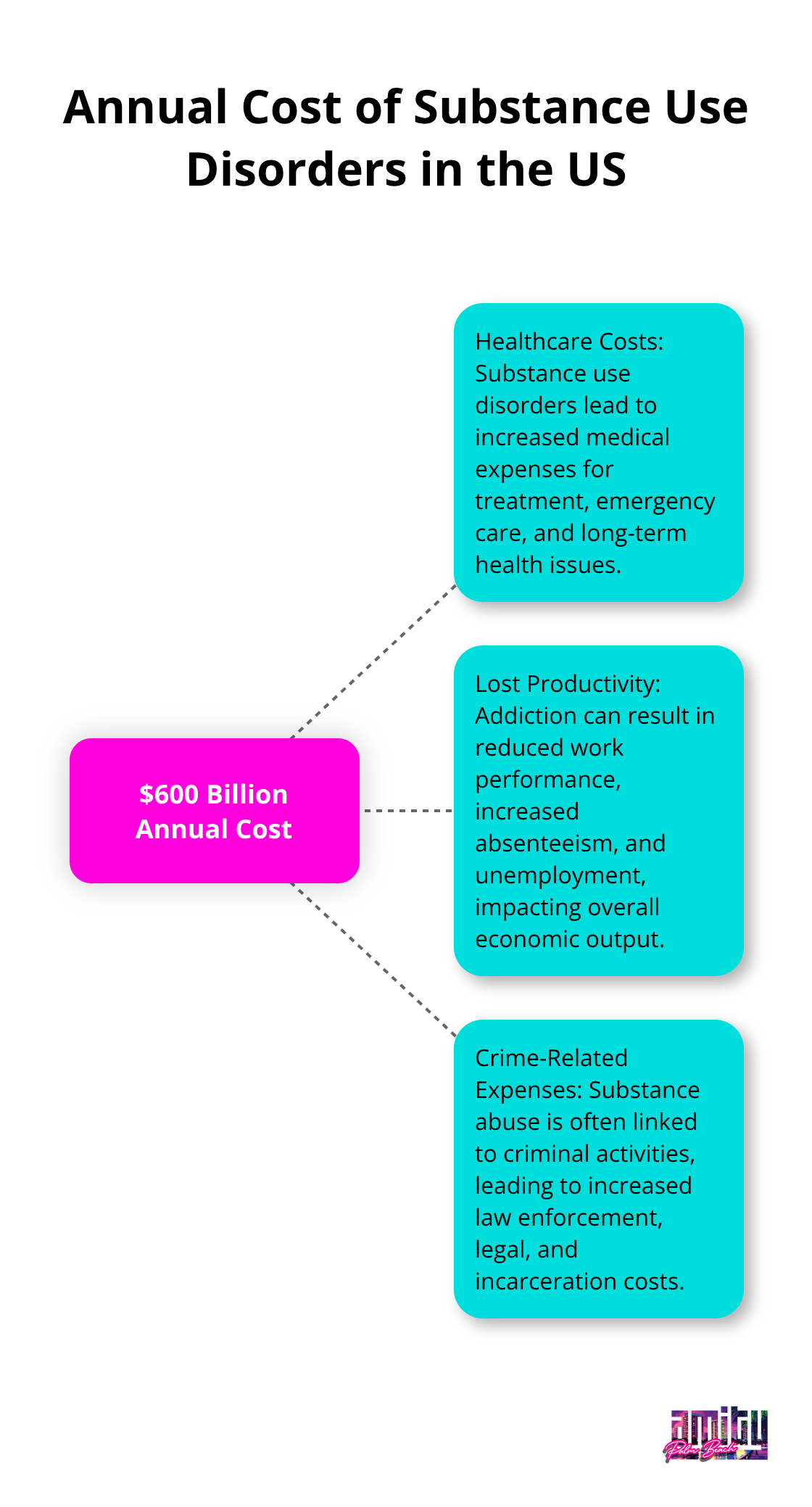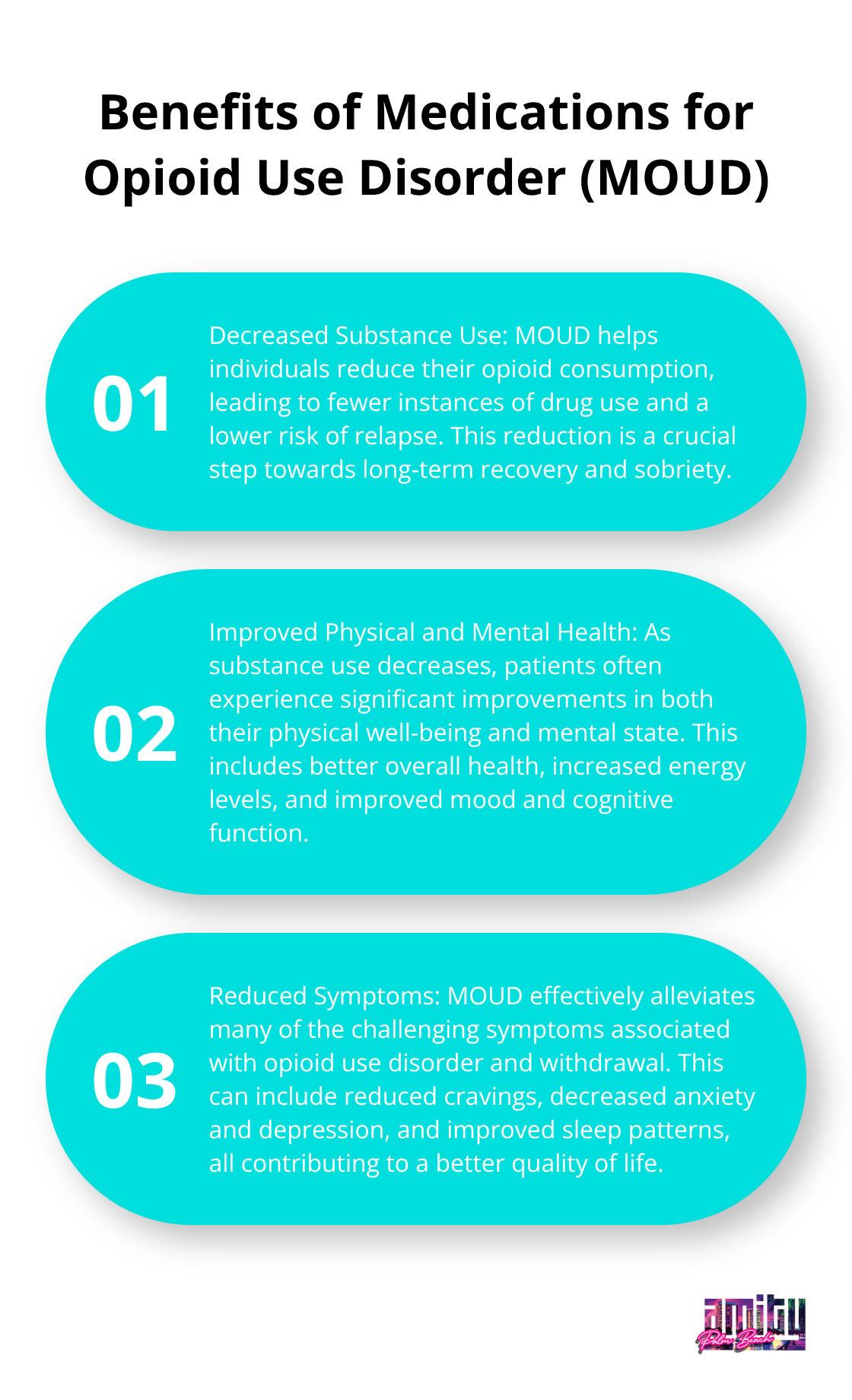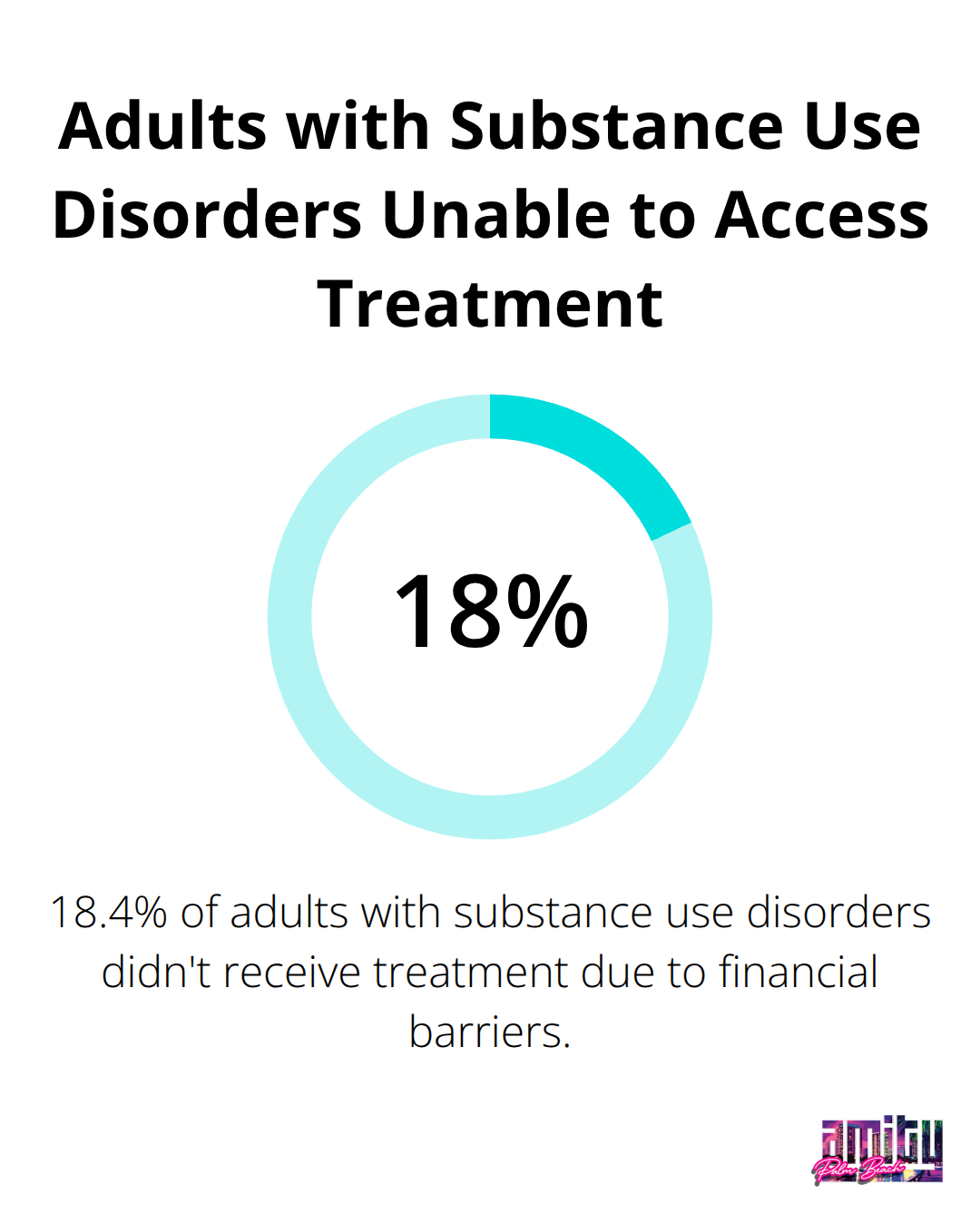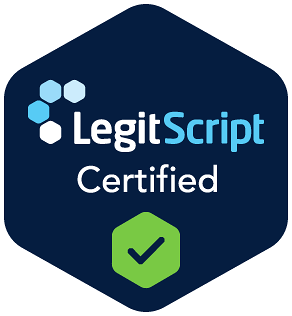At Amity Palm Beach, we understand the challenges of addiction and the critical role that support plays in recovery.
Addiction resources are the lifelines that can make all the difference in someone’s journey to healing. From professional treatment options to support groups and online tools, these resources offer hope and practical assistance.
In this post, we’ll explore the various addiction resources available and how to choose the right ones for your unique situation.
Understanding Addiction: A Complex Brain Disorder
Defining Addiction and Its Impact
Addiction is a complex brain disorder that affects millions of Americans. The National Institute on Drug Abuse defines addiction as a chronic, relapsing disorder characterized by compulsive drug seeking and use despite harmful consequences. This condition doesn’t just affect the individual using substances; it ripples out, touching families, workplaces, and entire communities. The Centers for Disease Control and Prevention reports that substance use disorders cost the United States more than $600 billion annually in healthcare costs, lost productivity, and crime.

Debunking Common Addiction Myths
One of the most damaging misconceptions about addiction is that it’s a moral failing or lack of willpower. This couldn’t be further from the truth. Addiction is a medical condition that changes brain chemistry and function. It’s not about choice, but about a complex interplay of genetic, environmental, and developmental factors.
Another myth we often encounter is that people must hit “rock bottom” before they can recover. This dangerous belief can delay treatment and increase the risk of severe health consequences (or even overdose). The truth is, early intervention leads to better outcomes. The sooner someone seeks help, the better their chances of successful recovery.
The Importance of Seeking Help
Seeking help for addiction is not a sign of weakness – it’s a courageous step towards reclaiming your life. According to the 2022 NSDUH Detailed Tables, national estimates of substance use, mental health, and treatment in the United States are available. This data highlights the importance of addressing the treatment gap and improving access to evidence-based treatments.
Professional support and comprehensive care can transform lives. Recovery is possible, but it often requires more than willpower alone. It needs a supportive environment, evidence-based treatments, and ongoing care to address the underlying causes of addiction and develop healthy coping mechanisms.
The Role of Treatment Centers
Treatment centers play a vital role in addiction recovery. They provide a structured environment where individuals can focus on healing without the distractions and triggers of daily life. These centers offer a range of services, from medically supervised detox to therapy and aftercare planning.
At Amity Palm Beach, we combine medical and psychological interventions with personalized, human-centered care. Our approach recognizes that each person’s journey to recovery is unique, and we tailor our treatment plans accordingly.
As we move forward, let’s explore the various types of addiction resources available to support your healing journey. From professional treatment options to support groups and online tools, these resources offer hope and practical assistance for those seeking recovery.
What Addiction Resources Are Available?
At Amity Palm Beach, we understand the complexity of navigating addiction treatment options. We’ve compiled a comprehensive overview of effective resources to support your recovery journey.
Professional Treatment Options
Professional treatment forms the cornerstone of addiction recovery. Inpatient programs provide 24/7 care in a structured environment. These programs suit individuals with severe addictions or those who need to step away from their daily environment to focus on recovery.
Outpatient programs offer flexibility for those who can’t commit to full-time residential treatment. These programs vary in intensity, from Partial Hospitalization Programs (PHP) that meet 5-7 days a week, to Intensive Outpatient Programs (IOP) that meet 3-5 days a week for a few hours each day.
Individual therapy is a key component of both inpatient and outpatient care. Cognitive Behavioral Therapy (CBT) and Dialectical Behavior Therapy (DBT) are two evidence-based approaches that have shown significant success in treating addiction.
Support Groups and 12-Step Programs
Support groups play a vital role in long-term recovery. Alcoholics Anonymous (AA) and Narcotics Anonymous (NA) are well-known 12-step programs that have helped millions of people maintain sobriety. These groups are free, widely available, and offer peer support that can prove invaluable in the recovery process.
For those seeking alternatives to 12-step programs, SMART Recovery (Self-Management and Recovery Training) offers a science-based approach to addiction recovery. This program focuses on self-empowerment and self-reliance, teaching tools and techniques to manage addictive behaviors.
Online Resources and Helplines
The digital age has brought addiction resources to our fingertips. The Substance Abuse and Mental Health Services Administration (SAMHSA) offers a National Helpline (1-800-662-HELP) that provides 24/7 free and confidential treatment referral and information services.
Online support communities like In The Rooms and Sober Grid offer virtual meetings and forums where individuals can connect with others in recovery. These platforms can help those in remote areas or with limited mobility.
Medication-Assisted Treatment
Medication-Assisted Treatment (MAT) combines behavioral therapy with FDA-approved medications to treat substance use disorders. A study shows decreased substance use, improved physical and mental health, and reduced symptoms after 6 months of MOUD (Medications for Opioid Use Disorder).

For alcohol use disorder, medications such as naltrexone, acamprosate, and disulfiram can help reduce cravings and maintain sobriety. It’s important to note that a qualified healthcare provider should always administer MAT.
As we explore these various addiction resources, it’s clear that recovery is a highly individualized process. The next step involves understanding how to choose the right resources for your unique situation and needs.
How to Choose the Right Addiction Resources
Assess Your Individual Needs
The first step in selecting addiction resources is to evaluate your specific situation. Consider the substances you struggle with and any co-occurring mental health conditions. Determine if you can commit to inpatient treatment or if outpatient options better suit your circumstances.
The Substance Abuse and Mental Health Services Administration (SAMHSA) reports that in 2020, 40.3 million people aged 12 or older had a substance use disorder. Your unique position within this broader context will guide your resource selection.
Examine Treatment Effectiveness
When choosing a treatment center, focus on evidence-based practices. The National Institute on Drug Abuse (NIDA) emphasizes that effective treatment addresses multiple needs, not just drug use. This includes medical, psychological, social, vocational, and legal problems.
Ask potential providers about their success rates and aftercare support. A study found that people who received planned long-term treatment or support had a 23.9% greater chance of abstaining or consuming moderately.
Factor in Practical Considerations
Location, cost, and insurance coverage significantly impact treatment accessibility. The 2020 National Survey on Drug Use and Health revealed that 18.4% of adults with substance use disorders didn’t receive treatment due to lack of health care coverage or inability to afford the cost.

Check with your insurance provider about addiction treatment coverage. Many insurance plans now cover addiction treatment as an essential health benefit. If you’re uninsured, explore state-funded programs or sliding scale payment options at treatment centers.
Include Your Support System
Family and friends can become powerful allies in your recovery. A study in the Journal of Substance Abuse Treatment showed that individuals with strong social support were more likely to complete treatment and maintain sobriety.
Try family therapy options or support groups for loved ones (such as Al-Anon or Nar-Anon). These resources can help your support system understand addiction and learn how to best assist you in your recovery journey.
Evaluate Holistic Approaches
Consider treatment centers that offer holistic approaches to complement traditional therapies. These may include yoga, meditation, art therapy, or nutrition counseling. Holistic methods can address the physical, emotional, and spiritual aspects of recovery (providing a well-rounded approach to healing).
Final Thoughts
Addiction resources provide essential support for recovery. They offer the tools and knowledge needed to overcome substance use disorders. At Amity Palm Beach, we recognize the value of comprehensive care in addiction treatment. Our evidence-based approach combines medical and psychological interventions with personalized care.
Taking the first step towards recovery demonstrates courage. You have options, including inpatient treatment, outpatient programs, and support groups. Recovery presents challenges, but with the right addiction resources and support system, you can achieve your goals.
Don’t postpone your healing journey. Contact a treatment center, call a helpline, or attend a support group meeting today. Your future self will appreciate your decision to take action (no matter how small it may seem). A healthier, happier life awaits you with the proper resources and support.




